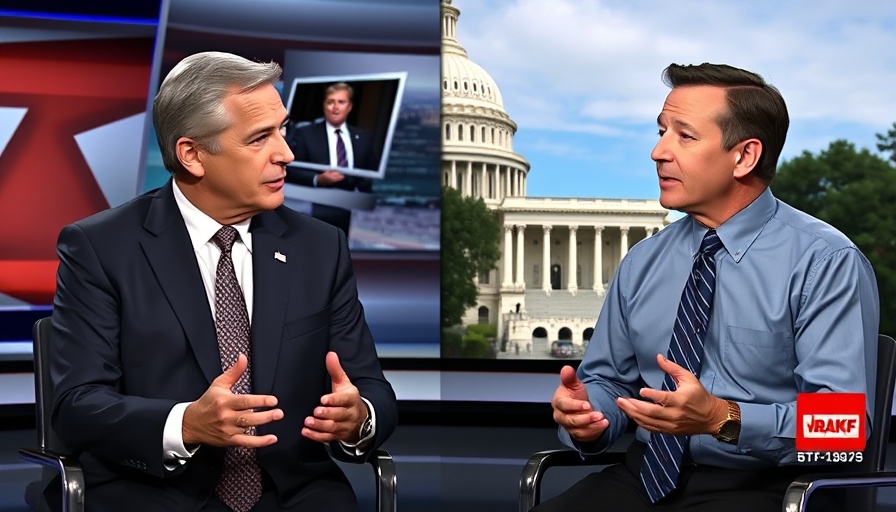
Understanding the Tension Between Activist Judges and Elected Officials
The recent remarks by Congressman Jim Jordan shine a spotlight on the ongoing conflict between unelected judges and those elected to govern. Highlighting a stark contrast in judicial interventions, Jordan notes that in just two months, former President Trump's administration faced 15 lower court injunctions, compared to the 12 that President Obama dealt with over eight years. This inconsistency raises questions about the role of federal judges in shaping policy beyond their jurisdiction and the implications for future administrations.
In 'Chairman Jordan: Judge Boasberg Overstepped his Judicial Authority', the discussion dives into the contentious relationship between judicial activism and elected governance, prompting a deeper analysis of this critical issue.
The Case Against Nationwide Injunctions
At the heart of Jordan's argument is the proposal to limit the power of district judges to issue nationwide injunctions. This legislation seeks to ensure that such decisions apply only to the involved parties within specific jurisdictions. The implication is clear: Jordan believes that a local judge shouldn’t have the power to impose sweeping changes that affect the entire country. He passionately argues that such a system is not just flawed but undermines the very foundation of democracy.
Judge Boasberg’s Controversial Rulings
Congressman Jordan specifically criticized Judge Boasberg, stating, "one of the dumbest [decisions] I've ever seen" was his ruling to halt deportations of undocumented criminals, describing it as a reckless move that compromises national security. This raises a broader issue of whether judges can act in a politically motivated manner, especially when their decisions seem to echo partisan lines.
Judicial Power vs. Presidential Authority
Jordan firmly believes in the strength of Article 2, which grants the president the executive power necessary to govern effectively. He argues that the president, elected by the people, should hold the authority to make critical decisions related to national security without interference from judicial activists. This perspective emphasizes a push to return power to elected officials, potentially reshaping the landscape of American governance.
The Future of the Judiciary and Governance
Looking forward, the proposed changes to how district judges operate could have significant implications for American democracy. By limiting the power of individual judges to make national rulings, Congress aims to restore balance and give more legislative control to elected representatives. This shift could dramatically alter the interactions between executive power and judicial oversight in the coming years.
In conclusion, Congressman Jim Jordan's outspoken critique of the judiciary raises fundamental questions about the balance of power in American governance. As discussions progress about limiting judicial reach, it's essential for conservatives to consider the implications for democracy in our nation.
 Add Row
Add Row  Add
Add 




 Add Row
Add Row  Add
Add 

Write A Comment